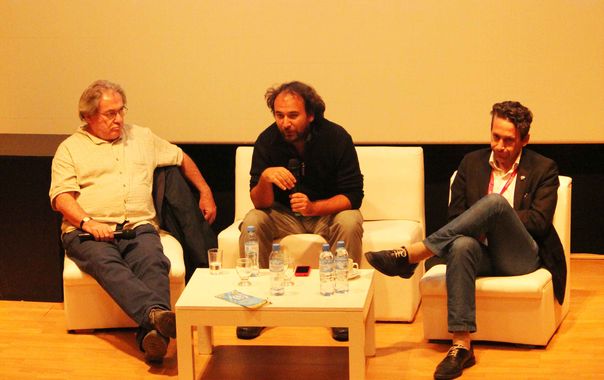A New Humanistic Perspective On Chilean Cinema
Lucía Salas of the 2013 Talent Press Buenos Aires reports from the BAFICI panel discussing the history, present and future of Chile's film industry.

On Friday 13th, during the 8th Talent Campus Buenos Aires, filmmaker Ignacio Agüero, producer Bruno Bettati and programmer Raúl Camargo gave a lecture on the present and future of Chilean cinema. The key point of the lecture was to develop the idea that the only way to reflect on the current state of Chilean cinema is through the recovery of Chilean people's memory.
The interviewees emphasized the importance of film education in the improvement of the future of filmmaking: an education especially focused on the history of film, which is what young students lack. Films schools were presented as spaces suitable for discussions and learning. Young directors with an academic background who are part of this new period, such as Sebastián Lelio and Dominga Sotomayor, were also mentioned.
But the key point of the lecture was a revision of the fundamental processes that have made Chilean cinema what it is today, which focused on the defeats of the Chilean people. Agüero stated that Chilean cinema nowadays has to deal with a success based in the condition of a defeated society, a society that was never able to win the battle against memory loss. Bettati mentioned three fundamental moments in Chilean history when the battle to win the public was lost – a battle that is still on today. Agüero and Bettati both fight for Chilean film to become a collective creation, different to the sum of particular works, promoted by the state through neutralization mechanisms such as having to compete for public and private funding.
The interviewees agreed that what Chilean cinema needs – as well as all Latin American cinema - is not to give in to the requests of the huge audiences, but to reeducate them so that they can share this present aesthetic/political journey, oriented to the raising of awareness and inclusion, through recovering the historical memory of the Chilean people. A movement that is related to revolution, which Agüero sees as part of the Chilean student movement, and with an idea of deep change, of a re-approach to human life. What we need to do –Agüero says – is change our girlfriends' mindsets. What he refers to is the moment when young people in front of a billboard ask their partners not to buy tickets for any Chilean or Argentinian film. It is at that moment when the battle is lost.

